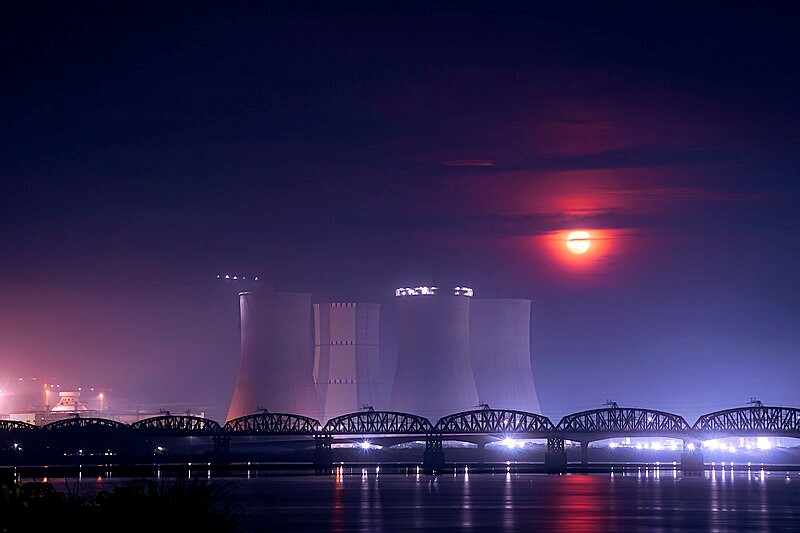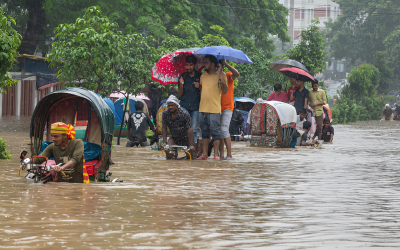Irfan Amin Patwary, Jahangirnagar University, Bangladesh
The Rooppur Nuclear Power Plant (RNPP) represents a significant milestone in Bangladesh’s pursuit of clean energy. Situated in the Pabna district, this nuclear power plant is set to be the first of its kind in the country, marking a major step forward in its energy sector. As Bangladesh strives to meet its growing energy demands and reduce its dependence on fossil fuels, the RNPP emerges as a pivotal project in achieving these goals.
Bangladesh has long faced challenges in meeting its energy needs. With a rapidly growing population and an expanding economy, the demand for electricity has soared. Historically, the country has relied heavily on natural gas, oil, and coal to generate power. However, these fossil fuel-based sources have significant drawbacks, including environmental pollution, finite availability, and susceptibility to global market fluctuations. Recognizing the need for a sustainable and reliable energy solution, the government of Bangladesh has turned to nuclear power as a viable alternative.
The journey towards establishing the RNPP began in the early 1960s when the idea of nuclear energy was first proposed in Bangladesh. However, it wasn’t until the 21st century that substantial progress was made. In 2009, the government signed a cooperation agreement with the Russian Federation to develop nuclear power in the country. This agreement laid the foundation for the construction of the RNPP, with Russia providing technical expertise, equipment, and financing for the project.
The RNPP consists of two units, each with a capacity of 1,200 megawatts (MW). These units are based on the VVER-1200 reactors, a type of pressurized water reactor developed by Russia’s state atomic energy corporation, Rosatom. The VVER-1200 reactors are known for their advanced safety features and high efficiency, making them a suitable choice for Bangladesh’s nuclear power ambitions. The construction of the first unit began in November 2017, followed by the second unit in July 2018. Despite the challenges posed by the COVID-19 pandemic, the project has made steady progress, with the first unit expected to be operational by 2023 and the second unit by 2024.
The implementation of the RNPP is expected to have a transformative impact on Bangladesh’s energy landscape. One of the most significant benefits of nuclear power is its ability to provide a stable and continuous supply of electricity. Unlike fossil fuel-based power plants, which are subject to fluctuations in fuel availability and prices, nuclear power plants can operate consistently over long periods. This reliability is crucial for Bangladesh, where power outages and load shedding have been persistent issues. By adding 2,400 MW of electricity to the national grid, the RNPP will significantly enhance the country’s energy security and reduce its vulnerability to power shortages.
Moreover, the RNPP will contribute to Bangladesh’s efforts to reduce greenhouse gas emissions and combat climate change. As a clean energy source, nuclear power generates electricity without producing carbon dioxide or other harmful pollutants. This is particularly important for Bangladesh, which is highly vulnerable to the impacts of climate change, including rising sea levels, extreme weather events, and loss of agricultural productivity. By diversifying its energy mix and incorporating nuclear power, Bangladesh can reduce its reliance on fossil fuels and decrease its carbon footprint, aligning with global efforts to transition to a low-carbon economy.
The RNPP also holds the potential to spur economic growth and development in Bangladesh. The construction and operation of the plant have created numerous job opportunities, both directly and indirectly. The project has employed thousands of workers, including engineers, technicians, and support staff, contributing to local employment and skills development. Additionally, the establishment of the RNPP has attracted investments in infrastructure and ancillary industries, such as transportation, manufacturing, and services. This influx of economic activity is expected to have a positive ripple effect, boosting local businesses and improving the livelihoods of communities in the region.
Furthermore, the RNPP represents a significant leap in technological advancement for Bangladesh. The collaboration with Russia has facilitated the transfer of nuclear technology and knowledge, enabling Bangladesh to develop its expertise in this field. The establishment of training programs and research facilities as part of the project will enhance the country’s capabilities in nuclear science and engineering. This technological leap can have far-reaching implications beyond the energy sector, fostering innovation and promoting the growth of a knowledge-based economy in Bangladesh.
While the RNPP holds immense promise, it is not without challenges and considerations. Ensuring the safety and security of the nuclear power plant is of paramount importance. The government of Bangladesh, in collaboration with international organizations such as the International Atomic Energy Agency (IAEA), has implemented stringent safety measures and regulatory frameworks to mitigate risks. Regular inspections, emergency preparedness drills, and robust monitoring systems are in place to ensure the safe operation of the plant. Additionally, public awareness and engagement are crucial in building trust and addressing any concerns related to nuclear energy.
Finally we can say that, the Rooppur Nuclear Power Plant is a landmark achievement in Bangladesh’s pursuit of clean energy. By harnessing the power of nuclear energy, Bangladesh is taking a significant step towards meeting its growing energy demands, reducing its carbon footprint, and enhancing energy security. The RNPP not only promises a stable and reliable source of electricity but also holds the potential to drive economic growth, technological advancement, and environmental sustainability. As the first nuclear power plant in the country, the RNPP is poised to play a pivotal role in shaping Bangladesh’s energy future and positioning it as a leader in clean energy in the region.











